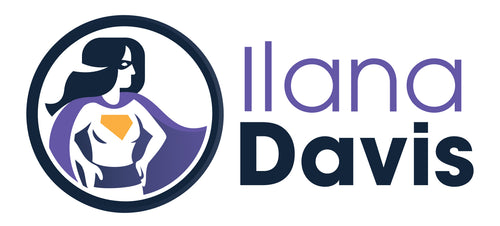Don't panic when SEO results change drastically
Google recently rolled out another Core Update on or around November 11th. As of Dec 3rd, it's still going on. For many Shopify stores, the potential impact of Google’s update right before the holiday is an unwelcome blow.
But what can you do about it?
The first thing I recommend is not to panic.
Google makes changes all the time. Some changes are so small we hardly notice. Other times, we may feel like we’ve been removed from Google completely.
It’s best to keep our cool.
Search results change constantly. Sit tight when Google makes big changes like this and let things level out.
If you notice a traffic drop near a Core Update, I recommend the following steps before you do anything.
-
Pay attention to dates. Updates from Google can take hours, days, and sometimes weeks. Usually, Core Updates are on the longer side. While the update is in process, results can fluctuate drastically.
-
Wait 1-2 weeks before passing judgment. If the update is still in process, it's too early to know if the Core Update was the cause of your traffic change. Let the Core Update finish, and wait at least a week before analyzing.
- Track ranking data before and after. A "gut" feeling that traffic has decreased isn't enough to go on. If you claim "a significant drop in traffic", make sure you can back that up with data.
Google has said many times “pages that drop after a core update may have nothing to fix.”
It's all about context!
Are we talking about a small drop in position (e.g. going from 4 to 7)? Or are we talking about a large drop in position (e.g. going from 2 to 60)?
A small shift in position can happen all the time and is really common for better or for worse. Small shifts are normal and I wouldn't make any drastic changes on a page that performs well enough.
A larger shift in position that has continued to drop over time could mean a larger issue is at play. Use this guide to understand what could cause traffic drops.
Google has shared in the past how you can focus on your page content to improve results with this self-assessment. I pulled out a few questions to ask yourself that I thought would be helpful.
- Does the content provide original information, reporting, research, or analysis?
- If the content draws on other sources, does it avoid simply copying or rewriting those sources, and instead provide substantial additional value and originality?
- Does the content provide substantial value when compared to other pages in search results?
- Does the content have any spelling or stylistic issues?
- Is the content mass-produced by or outsourced to a large number of creators, or spread across a large network of sites, so that individual pages or sites don't get as much attention or care?
- Is this content written or reviewed by an expert or enthusiast who demonstrably knows the topic well?
- After reading your content, will someone leave feeling they've learned enough about a topic to help achieve their goal?
When evaluating your traffic changes, always be objective!
Google continues to ask for content that is focused on the customer - not the search engine.
Making changes because you heard it was good/bad for SEO won't work. Do what's best for your customers. If showing the original and updated published date on a blog post is valuable to your customers, do it because it helps them, not your SEO.
Remember that what works for one site may not work for you. Google makes no guarantees that the changes you make will positively impact your site.
If you made changes to your site or believe the Core Update affected you, be patient. Some changes (by you or Google) can take effect within a few days, others could be several months.
It can be hard to sit and wait for the Core Updates to finish or for the next Core Update to see if your site bounces back. But I can't stress enough how important it is to let Google do its thing.
JSON-LD for SEO
Get more organic search traffic from Google without having to fight for better rankings by utilizing search enhancements called Rich Results.




